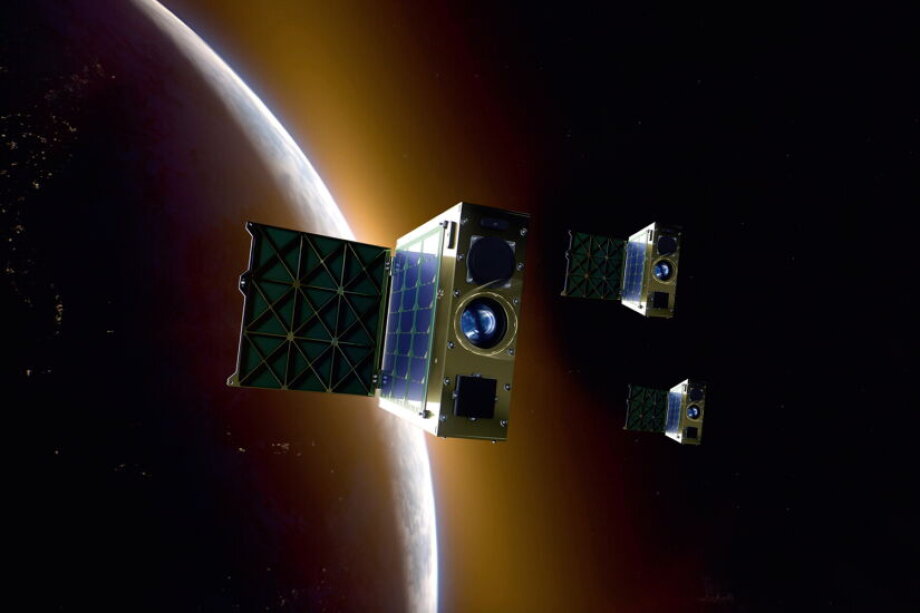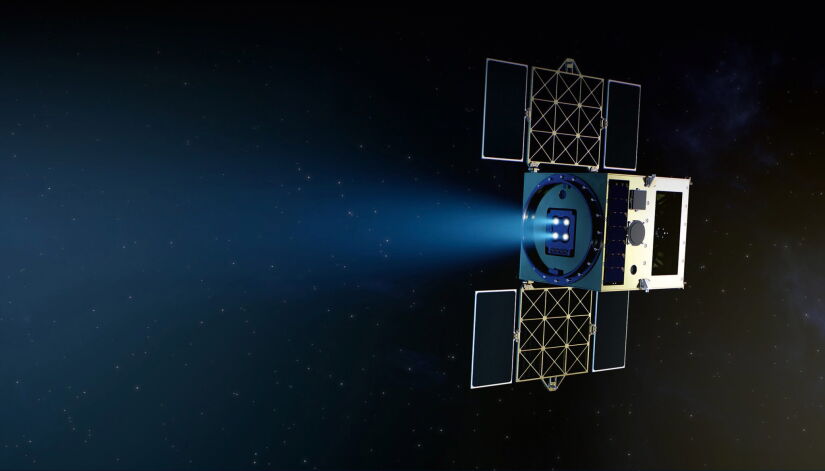Poland stakes its claim in the new spacea race
Major ESA projects, growing investment, and global ambitions: Poland’s space industry is moving from underdog to serious contender by Beata Socha

Major ESA projects, growing investment, and global ambitions: Poland’s space industry is moving from underdog to serious contender by Beata Socha

When Creotech Instruments clinched a European Space Agency (ESA) contract in April this year, to lead the Camila satellite program, it wasn’t just another deal. The EUR 52 million project, aiming to launch three Earth observation satellites by 2027, marks a new level of maturity for Poland’s space industry.
Half of Camila’s budget will stay in Poland, flowing to companies like Scanway, CloudFerro, KP Labs, and Eycore. Listed on the Warsaw Stock Exchange’s main market since 2022, Creotech will serve as project integrator and manager, while ESA’s advance payment model eases the financial pressure.
“We won’t need extra capital. ESA will provide advance payments,” said Dr. Grzegorz Brona, Creotech’s president. It’s a win that shows how far Poland’s space industry has advanced — and how much faster it’s moving now.
The Camila project reflects a wider shift. Polish space companies are scaling up fast, inspired less by traditional aerospace giants and more by the scrappier “fail-and-fix” philosophy championed by SpaceX: launch, learn, fix, and fly again.
For companies like Creotech and Scanway, this isn’t just a motto — it’s operational necessity. Without legacy infrastructure slowing them down, these young firms iterate quickly, focus tightly on new markets, and capture opportunities that older competitors often miss.
Creotech’s recent moves illustrate the sector’s growing ambition. In addition to leading Camila, the company is executing a PLN 453 million contract for the Polish military’s MikroGlob satellite constellation. It’s also spinning off its quantum technologies division into a new publicly listed entity, led by division head Anna Kamińska.
The spin-off will allow Creotech to shield its profitable core satellite business from the high-risk, high-cost realities of quantum R&D. It’s a savvy move that mirrors strategies used by bigger global tech firms — focusing investment, managing risk, and preparing for faster scale.
Under the leadership of Dr. Brona, a former CERN physicist and ex-head of the Polish Space Agency, Creotech is methodically building a two-track portfolio and hedging its investments: satellites today, quantum technologies tomorrow.
Creotech’s 2022 move to the Warsaw Stock Exchange’s main market was more than symbolic. It unlocked greater access to institutional capital and demonstrated the company’s maturity. Four successful funding rounds followed, fueling an ambitious expansion strategy.
Scanway, another standout, is also scaling up quickly. Listed on NewConnect since 2023, the company plans to debut on the Warsaw Stock Exchange’s main market later this year, without a new share issue. “We treated NewConnect as an important step toward the main market, and we’re well prepared for it,” said Jędrzej Kowalewski, Scanway’s CEO, in an interview with Parkiet.com. The company posted record 2024 revenues, with 82% of income now tied to its space division, and its order backlog quintupled, including a high-profile contract to deliver an optical instrument for a 2025 Moon mission.
Scanway’s strong financial standing is proof that its business model is working, and that the technology it delivers is high in demand. In 2024, Scanway became the only Polish firm with equipment aboard the inaugural flight of Ariane 6, Europe’s largest-ever launch vehicle. It also delivered a key component — a 10-kilogram telescope, the largest optical instrument ever built in Poland — for EagleEye, the country’s biggest satellite to date.
These financial successes show that Poland’s space firms are serious players — and that global investors are starting to take them seriously, too. As Dr. Brona noted, “GPW is a tool for more mature companies, not startups.”

Despite these milestones, Poland’s space industry remains remarkably young. Creotech was founded in 2012, a blink compared to Europe’s aerospace heavyweights.
Yet that youth is proving an advantage. Polish firms aren’t weighed down by outdated infrastructure or aging systems. Instead, they can build leaner, faster, and more aligned with new-generation space needs — from small satellites to AI-enhanced data processing.
“Polish firms are in a good position because they started fresh, without legacy systems that would slow them down,” Brona said in an interview with Space24.pl.
Rather than retrofitting old factories and protocols, Poland’s space entrepreneurs are natively agile — and that agility is paying off.
Yet barriers remain. As Dr. Brona pointed out, Poland still struggles to access key information early enough to position its companies ahead of European funding cycles. “To compete effectively, we need well-informed Polish representatives in European institutions who can alert us to major upcoming initiatives and top-priority technologies,” he said.
Without early intelligence, Polish firms risk developing technologies that don’t match the EU’s future priorities — or missing critical windows for influence and participation.
The geopolitical backdrop only amplifies the sector’s importance. Russia’s full-scale invasion of Ukraine exposed gaps in Europe’s satellite-based communications, navigation, and surveillance. Global supply chains fractured. Dependence on non-European providers suddenly looked dangerously risky.
In this environment, sovereign space capabilities have moved from “nice-to-have” to essential.
“The global geopolitical situation clearly shows that Europe must strengthen its own technologies,” Brona emphasized in his Space24.pl interview. “The U.S. is drifting further from Europe, cooperation with China is problematic, and Russia is completely out. Europe must develop its own capabilities.”
Programs like Camila and MikroGlob are about more than commercial success — they are about Europe’s ability to act independently in a volatile world. For Poland, building its space sector isn’t just about business opportunity. It’s about strategic security, national resilience, and European autonomy.
Poland’s space sector has crossed a critical threshold. No longer just a small supplier and subcontractor, it is becoming a core architect of Europe’s new space landscape. The momentum is real — and with geopolitical urgency rising, the opportunities are only getting bigger.
Young companies like Creotech and Scanway are showing that Poland can deliver — not someday, but today. ESA contracts, public listings, Moon missions, and quantum
spin-offs are proof that Polish firms aren’t just riding the global space boom. They are helping build it.